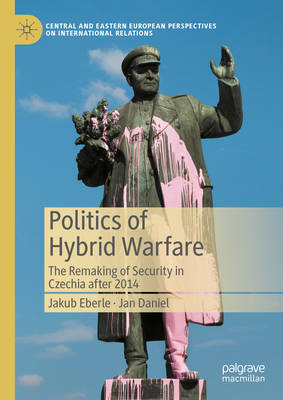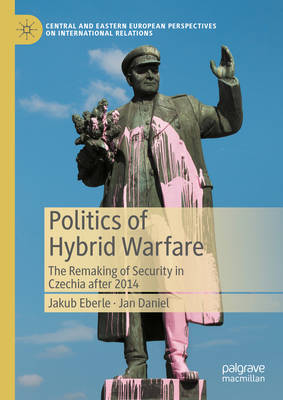
Je cadeautjes zeker op tijd in huis hebben voor de feestdagen? Kom langs in onze winkels en vind het perfecte geschenk!
- Afhalen na 1 uur in een winkel met voorraad
- Gratis thuislevering in België vanaf € 30
- Ruim aanbod met 7 miljoen producten
Je cadeautjes zeker op tijd in huis hebben voor de feestdagen? Kom langs in onze winkels en vind het perfecte geschenk!
- Afhalen na 1 uur in een winkel met voorraad
- Gratis thuislevering in België vanaf € 30
- Ruim aanbod met 7 miljoen producten
Zoeken
€ 149,95
+ 299 punten
Uitvoering
Omschrijving
This is a first book-long analysis showing how the notion of 'hybrid warfare' was used to transform security policies and discourses in an EU/NATO country. Building on current debates in International Political Sociology, Critical Security Studies, and Critical Geopolitics, it provides a novel account of how crisis, geopolitics, uncertainty, and expertise are intertwined in the social construction of threats. Based on extensive and original empirical research of large textual archive and elite interviews in the Czech Republic and Brussels, the book shows how officials, bureaucrats, journalists, activists, and experts all participate in the reshaping of security in a new geopolitical environment. Zooming on the case of Czechia and its specific Central European context, it complements the predominantly Western-centric studies of insecurity with an account of how the liminal position on an East/West boundary influences security politics. As a first study of its kind and scope, it will be of interest to academics and students interested in Central European politics, practices and discourses of hybrid warfare, as well as critical approaches to security and geopolitics.
Specificaties
Betrokkenen
- Auteur(s):
- Uitgeverij:
Inhoud
- Aantal bladzijden:
- 229
- Taal:
- Engels
- Reeks:
Eigenschappen
- Productcode (EAN):
- 9783031327025
- Verschijningsdatum:
- 24/06/2023
- Uitvoering:
- Hardcover
- Formaat:
- Genaaid
- Afmetingen:
- 148 mm x 210 mm
- Gewicht:
- 439 g

Alleen bij Standaard Boekhandel
+ 299 punten op je klantenkaart van Standaard Boekhandel
Beoordelingen
We publiceren alleen reviews die voldoen aan de voorwaarden voor reviews. Bekijk onze voorwaarden voor reviews.









